Mattawa, ON – Tuesday, September 2, 2025 – The Canadian Institute of Forestry/Institut forestier du Canada (CIF-IFC) is pleased to announce the appointment of Curtis Cook as Executive Director, effective September 2, 2025. “After thoughtful consideration, the CIF-IFC is delighted to welcome Curtis Cook to the team,” says Margaret Symon, CIF-IFC President. With over twenty years of senior management and executive experience, including with non-profit organizations, First Nations, and community services, Cook brings to the Institute a wealth of experience as a motivated and innovative leader. “Curtis Cook brings to the CIF-IFC a suite of team leadership skills, as well as expertise at building beneficial relationships with partners, funders, and stakeholders,” noted Symon.

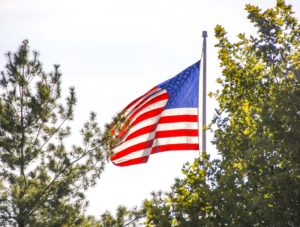 WASHINGTON — US President Trump is indicating that he’ll ask the Supreme Court tomorrow to overturn a federal appeals court ruling that found many of his
WASHINGTON — US President Trump is indicating that he’ll ask the Supreme Court tomorrow to overturn a federal appeals court ruling that found many of his  CALGARY — Fewer tourists are coming to Jasper, Alberta than usual this year, but it’s not for a lack of people eager to visit the picturesque Rocky Mountain town. Numbers are about as good as they can be, considering about one-fifth of the town’s overnight accommodations burned when a ferocious wildfire swept through last summer, said Tourism Jasper CEO Tyler Riopel. …As the Jasper recovery continues, tourism operators affected by wildfires elsewhere this year are struggling. Northern Saskatchewan and Manitoba have been particularly hard hit, which has taken a toll on outfitting businesses that cater to hunters and fishers. Roy Anderson, acting CEO of the Saskatchewan Commission of Professional Outfitters, said his group is surveying members to quantify the financial impact. “We’re talking millions of dollars in terms of lost revenue at a minimum,” he said.
CALGARY — Fewer tourists are coming to Jasper, Alberta than usual this year, but it’s not for a lack of people eager to visit the picturesque Rocky Mountain town. Numbers are about as good as they can be, considering about one-fifth of the town’s overnight accommodations burned when a ferocious wildfire swept through last summer, said Tourism Jasper CEO Tyler Riopel. …As the Jasper recovery continues, tourism operators affected by wildfires elsewhere this year are struggling. Northern Saskatchewan and Manitoba have been particularly hard hit, which has taken a toll on outfitting businesses that cater to hunters and fishers. Roy Anderson, acting CEO of the Saskatchewan Commission of Professional Outfitters, said his group is surveying members to quantify the financial impact. “We’re talking millions of dollars in terms of lost revenue at a minimum,” he said.
 To better compete with Canada’s transcontinental railroads, efficiencies within the trucking industry, and to capitalize on a more relaxed regulatory environment, the railroad industry is entering into a consolidation phase with the major operators all reportedly in play. On the heels of the 2023 merger between Canadian Pacific and Kansas City Southern which connected Canada, the US and Mexico with the first single-line railway, Union Pacific and Norfolk Southern are pursuing a merger that would create the first coast-to-coast railway system in the US. The tie-up between Norfolk Southern and Union Pacific raised the possibility of further consolidation in the industry with investors eyeing a merger between CSX and BNSF, or with CPKC. While mergers might satisfy shareholders and activist investors, industry insiders see the trend creating more inefficiencies. …Freight Rail Customer Alliance is opposed to further consolidation given that past mergers have resulted in higher transportation costs and unreliable service for customers.
To better compete with Canada’s transcontinental railroads, efficiencies within the trucking industry, and to capitalize on a more relaxed regulatory environment, the railroad industry is entering into a consolidation phase with the major operators all reportedly in play. On the heels of the 2023 merger between Canadian Pacific and Kansas City Southern which connected Canada, the US and Mexico with the first single-line railway, Union Pacific and Norfolk Southern are pursuing a merger that would create the first coast-to-coast railway system in the US. The tie-up between Norfolk Southern and Union Pacific raised the possibility of further consolidation in the industry with investors eyeing a merger between CSX and BNSF, or with CPKC. While mergers might satisfy shareholders and activist investors, industry insiders see the trend creating more inefficiencies. …Freight Rail Customer Alliance is opposed to further consolidation given that past mergers have resulted in higher transportation costs and unreliable service for customers.


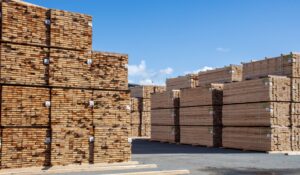 BC’s forestry sector is awaiting the results of a US Commerce Department investigation into the imports of wood products, which could impose further tariffs on the beleaguered industry. It comes months after US President Trump launched a Section 232 investigation into whether importing timber, lumber and derivative products could pose a national security threat to the US. …”Lumber is just one of many sectors that could get impacted … maybe lumber gets a lower tariff, but plywood and OSB and pulp get a higher tariff. We don’t know,” said Russ Taylor. …Taylor says that, while the Section 232 tariffs could cause further mill curtailments in BC, the U.S. forestry industry doesn’t yet have the capacity to fill the void. …”And the US mills will be very happy to raise their price … at a discount to the Canadian price because that’s just free money in the short term for them,” he added.
BC’s forestry sector is awaiting the results of a US Commerce Department investigation into the imports of wood products, which could impose further tariffs on the beleaguered industry. It comes months after US President Trump launched a Section 232 investigation into whether importing timber, lumber and derivative products could pose a national security threat to the US. …”Lumber is just one of many sectors that could get impacted … maybe lumber gets a lower tariff, but plywood and OSB and pulp get a higher tariff. We don’t know,” said Russ Taylor. …Taylor says that, while the Section 232 tariffs could cause further mill curtailments in BC, the U.S. forestry industry doesn’t yet have the capacity to fill the void. …”And the US mills will be very happy to raise their price … at a discount to the Canadian price because that’s just free money in the short term for them,” he added. 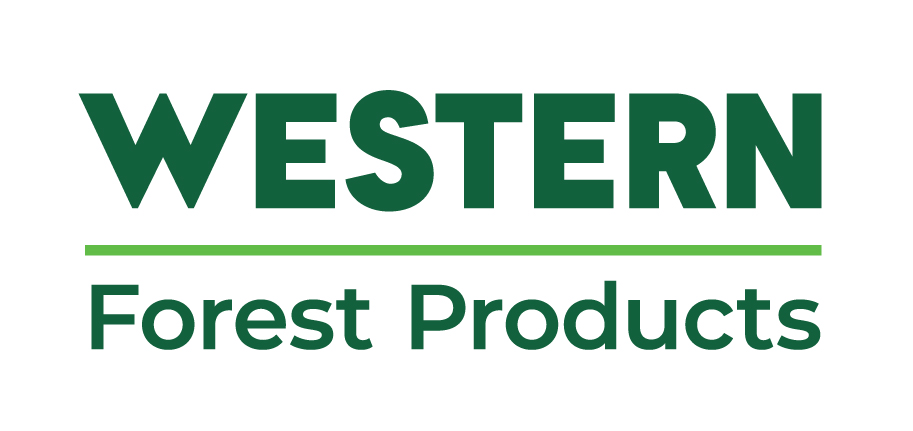 Western is proud to launch a refreshed brand that better reflects who we are, where we’re going and what our customers, communities, and partners expect from us. Our refreshed brand is rooted in our belief that wood plays a vital role in building a more sustainable future. Wood has always been part of everyday life – in the homes we live in, the furniture we use and the warmth and comfort we seek in natural materials. At Western, we are proud to carry that legacy forward by helping meet today’s demand for beautiful, low-carbon building materials. This brand refresh is grounded in our long-term strategy and shaped by the people who make Western what it is. It reflects our continued commitment to quality, sustainability and stewardship. Explore the rest of our site to see how our refreshed brand reflects the care we put into everything we do, from forest to finished product.
Western is proud to launch a refreshed brand that better reflects who we are, where we’re going and what our customers, communities, and partners expect from us. Our refreshed brand is rooted in our belief that wood plays a vital role in building a more sustainable future. Wood has always been part of everyday life – in the homes we live in, the furniture we use and the warmth and comfort we seek in natural materials. At Western, we are proud to carry that legacy forward by helping meet today’s demand for beautiful, low-carbon building materials. This brand refresh is grounded in our long-term strategy and shaped by the people who make Western what it is. It reflects our continued commitment to quality, sustainability and stewardship. Explore the rest of our site to see how our refreshed brand reflects the care we put into everything we do, from forest to finished product.

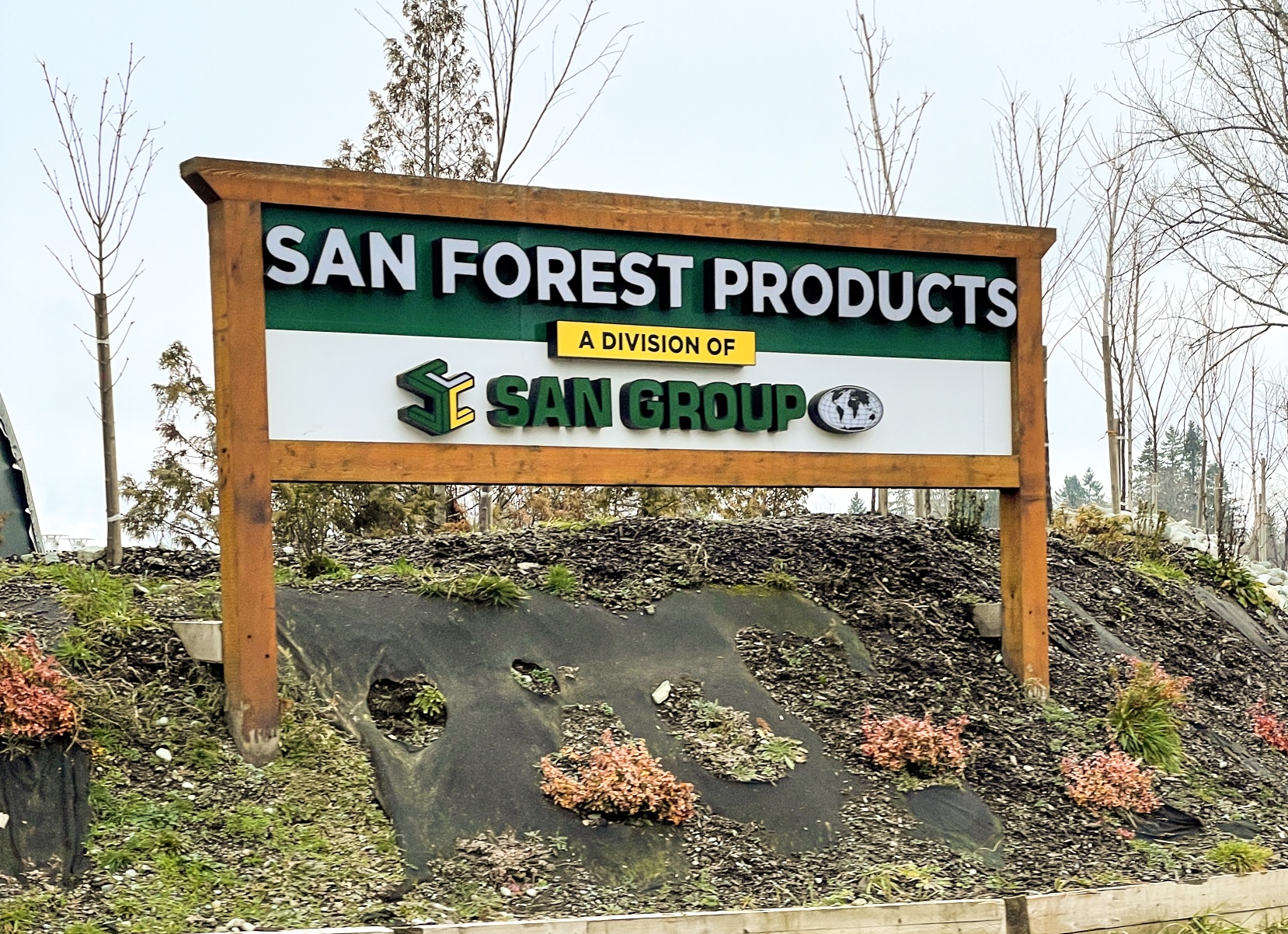 The monitor overseeing the credit-protection process for San Group, a Langley-based forestry company with debts in excess of $150 million, has applied to the courts for an extension of the process in order to complete the sale of the company’s assets. Deloitte Restructuring has asked the courts to extend the process to Oct. 31. It currently expires Sept. 5. …According to the monitor’s ninth report to the courts, filed this week, the sale of three San Group properties has now closed, and only a Langley farm remains of the major assets. The sale of the Coulson Mill in Port Alberni closed June 20 with proceeds of $12.06 million, the Langley mill site closed July 15, netting $12.37 million, and the Port Alberni value-added facility sale closed July 29, netting $8.25 million. On top of that, Tradewest Asset Solutions has now completed the sale of all of San Group’s remaining inventory, which resulted in $1.178 million being added to the pile.
The monitor overseeing the credit-protection process for San Group, a Langley-based forestry company with debts in excess of $150 million, has applied to the courts for an extension of the process in order to complete the sale of the company’s assets. Deloitte Restructuring has asked the courts to extend the process to Oct. 31. It currently expires Sept. 5. …According to the monitor’s ninth report to the courts, filed this week, the sale of three San Group properties has now closed, and only a Langley farm remains of the major assets. The sale of the Coulson Mill in Port Alberni closed June 20 with proceeds of $12.06 million, the Langley mill site closed July 15, netting $12.37 million, and the Port Alberni value-added facility sale closed July 29, netting $8.25 million. On top of that, Tradewest Asset Solutions has now completed the sale of all of San Group’s remaining inventory, which resulted in $1.178 million being added to the pile.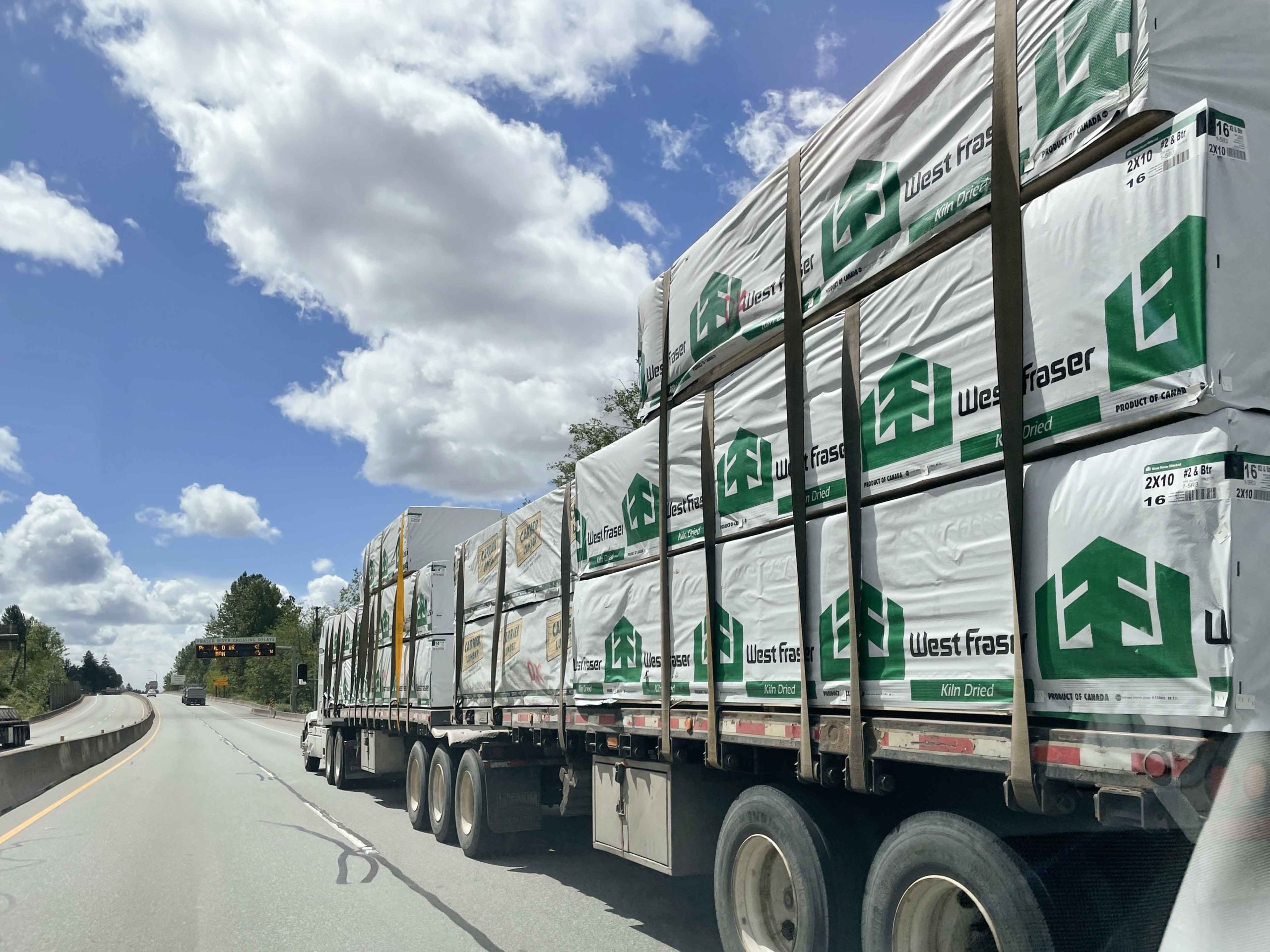 West Fraser Timber is continuing to succeed in this ever-changing world, despite a lower second quarter. …Sales were up slightly from Q1 — $1.532 billion, compared to $1.459 billion. However, earnings were nearly cut in half — $24 million compared to $42 million in the first quarter. “Demand for many of our building products slowed in the second quarter as spring building activity fell short of our expectations,” said Sean McLaren, West Fraser’s President and CEO. “This was more acute in our North America Engineered Wood Products segment, which experienced further easing of demand as the quarter progressed [with] softer U.S. new home construction.” …West Timber’s director of communications, Joyce Wagenaar, told Black Press Media that this year has been a challenge economically. “2025 has brought a number of changes, most notably sluggish demand for building products in Canada and the U.S. due to challenging economic conditions, leading to a slowdown in new home construction,” said Wagenaar.
West Fraser Timber is continuing to succeed in this ever-changing world, despite a lower second quarter. …Sales were up slightly from Q1 — $1.532 billion, compared to $1.459 billion. However, earnings were nearly cut in half — $24 million compared to $42 million in the first quarter. “Demand for many of our building products slowed in the second quarter as spring building activity fell short of our expectations,” said Sean McLaren, West Fraser’s President and CEO. “This was more acute in our North America Engineered Wood Products segment, which experienced further easing of demand as the quarter progressed [with] softer U.S. new home construction.” …West Timber’s director of communications, Joyce Wagenaar, told Black Press Media that this year has been a challenge economically. “2025 has brought a number of changes, most notably sluggish demand for building products in Canada and the U.S. due to challenging economic conditions, leading to a slowdown in new home construction,” said Wagenaar. A fire at a lumber yard inside Quesnel city limits is being managed by West Fraser Mills and was expected to be completely extinguished on Monday, Aug. 25, the city’s fire chief said. The 500-square-foot fire at BC Eco Chips on Pinecrest Road was first spotted around 4 a.m. on Saturday, Aug. 23, leading to a response from six fire departments in the Cariboo Regional District, BC Wildfire Service and personnel from West Fraser Mills. Reached by phone on Aug. 25, Quesnel Fire Chief Ron Richert said that the fire departments and wildfire service withdrew from the scene around 8 p.m., leaving West Fraser Mills in charge of managing the scene. At that point, the chief said, there were still “significant flames” but it was fully contained. …Richert confirmed that there were no structured damaged or people hurt by the fire. The cause of the fire has yet to be determined.
A fire at a lumber yard inside Quesnel city limits is being managed by West Fraser Mills and was expected to be completely extinguished on Monday, Aug. 25, the city’s fire chief said. The 500-square-foot fire at BC Eco Chips on Pinecrest Road was first spotted around 4 a.m. on Saturday, Aug. 23, leading to a response from six fire departments in the Cariboo Regional District, BC Wildfire Service and personnel from West Fraser Mills. Reached by phone on Aug. 25, Quesnel Fire Chief Ron Richert said that the fire departments and wildfire service withdrew from the scene around 8 p.m., leaving West Fraser Mills in charge of managing the scene. At that point, the chief said, there were still “significant flames” but it was fully contained. …Richert confirmed that there were no structured damaged or people hurt by the fire. The cause of the fire has yet to be determined.


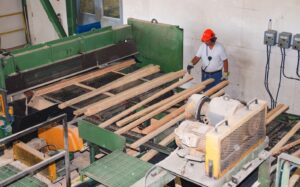 JAFFRAY, BC — The BC Labour Relations Board has dismissed an application from unionized employees with Galloway Lumber Company seeking a court order against the employer in a labour dispute over a negotiated severance agreement due to the permanent closure of the Galloway sawmill, near Jaffray. While the labour board dismissed the application on Aug. 14, vice-chair Carmen Hamilton deferred the matter to the parties’ negotiated dispute resolution process. Meanwhile, both sides are have agreed to bring the matter before an arbitrator who is not available until January 2026. “At its heart, this matter is a contract interpretation dispute,” wrote Hamilton. The United Steelworkers Local L-405 is seeking roughly $1.2 million in severance that was negotiated as part of an adjustment plan that was negotiated following the closure of the mill.
JAFFRAY, BC — The BC Labour Relations Board has dismissed an application from unionized employees with Galloway Lumber Company seeking a court order against the employer in a labour dispute over a negotiated severance agreement due to the permanent closure of the Galloway sawmill, near Jaffray. While the labour board dismissed the application on Aug. 14, vice-chair Carmen Hamilton deferred the matter to the parties’ negotiated dispute resolution process. Meanwhile, both sides are have agreed to bring the matter before an arbitrator who is not available until January 2026. “At its heart, this matter is a contract interpretation dispute,” wrote Hamilton. The United Steelworkers Local L-405 is seeking roughly $1.2 million in severance that was negotiated as part of an adjustment plan that was negotiated following the closure of the mill.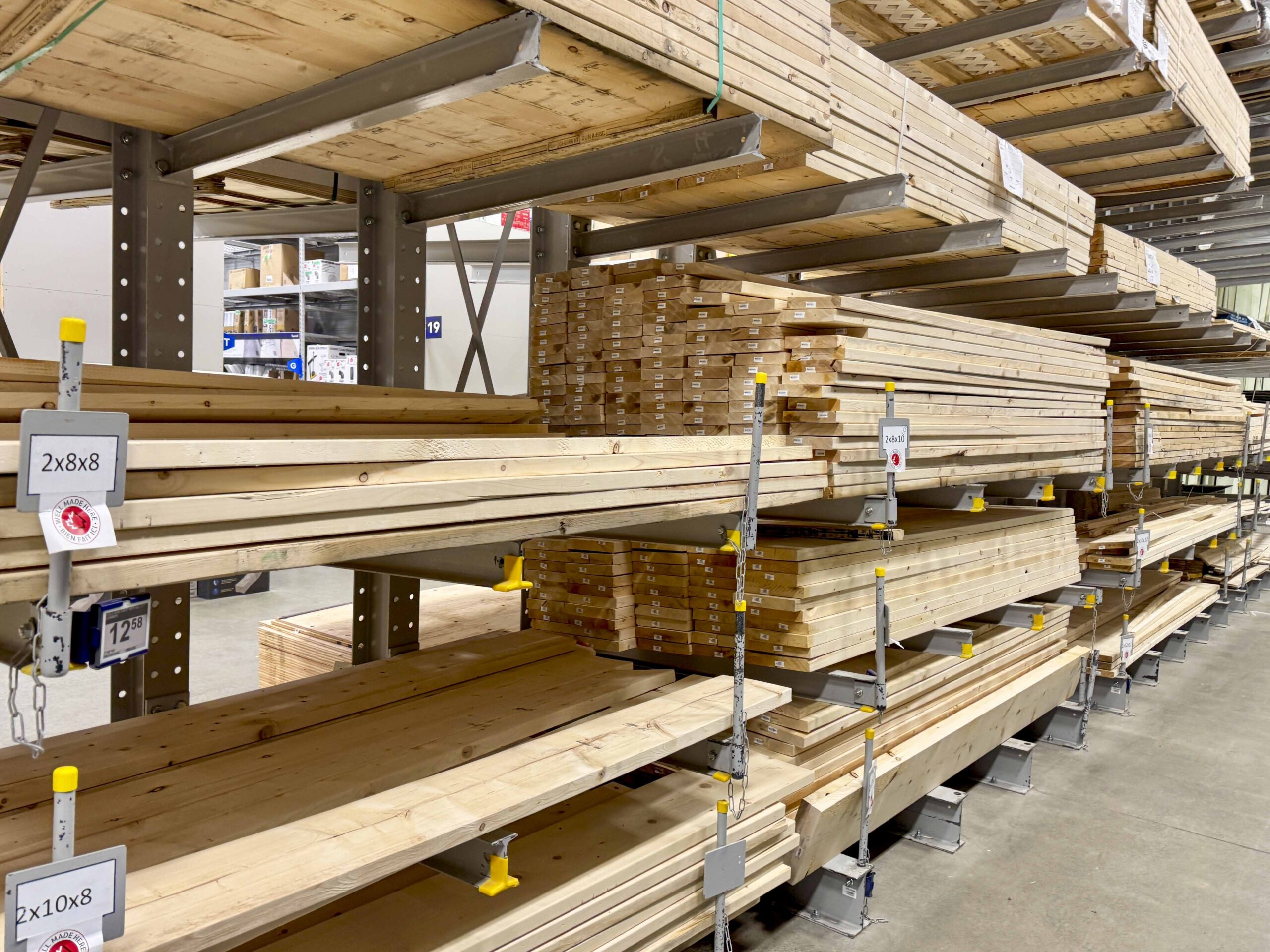 Canadian business owners are sharing growing fears that things could go from bad to worse if the U.S.-imposed trade war doesn’t end soon. New data from the Canadian Federation of Independent Business (CFIB) shows those business owners are being hit the hardest, particularly in B.C. “Two-thirds of B.C. businesses import or export directly to the United States, and when you look at those who do so indirectly, so they buy from importers or exporters, that number jumps up to 80 per cent of all businesses exposed to trade with the United States. So, that’s a huge number,” Ryan Mitton, director of Legislative Affairs in B.C. at the CFIB said. He adds that the situation appears even more grim for hard-hit industries like steel and lumber. “…one in five in BC have been impacted by softwood lumber tariffs, and that’s the highest rate of all the provinces in Canada,” he adds.
Canadian business owners are sharing growing fears that things could go from bad to worse if the U.S.-imposed trade war doesn’t end soon. New data from the Canadian Federation of Independent Business (CFIB) shows those business owners are being hit the hardest, particularly in B.C. “Two-thirds of B.C. businesses import or export directly to the United States, and when you look at those who do so indirectly, so they buy from importers or exporters, that number jumps up to 80 per cent of all businesses exposed to trade with the United States. So, that’s a huge number,” Ryan Mitton, director of Legislative Affairs in B.C. at the CFIB said. He adds that the situation appears even more grim for hard-hit industries like steel and lumber. “…one in five in BC have been impacted by softwood lumber tariffs, and that’s the highest rate of all the provinces in Canada,” he adds. MANIWAKI, Quebec — The Domtar sawmill in Maniwaki, Quebec, will temporarily close again next month. The company, which acquired the mill when it bought Resolute Forest Products in 2023, confirmed Wednesday to Radio-Canada that the indefinite closure will begin Oct. 10. It cited difficult market conditions and US softwood lumber duties, which rose to more than 35 per cent last month. About 120 workers at the mill lost their jobs in a previous closure that started in December 2024. The mill reopened for about 50 hours a week at the start of June. About 3,800 people lived in the western Quebec community as of the 2021 census. [END]
MANIWAKI, Quebec — The Domtar sawmill in Maniwaki, Quebec, will temporarily close again next month. The company, which acquired the mill when it bought Resolute Forest Products in 2023, confirmed Wednesday to Radio-Canada that the indefinite closure will begin Oct. 10. It cited difficult market conditions and US softwood lumber duties, which rose to more than 35 per cent last month. About 120 workers at the mill lost their jobs in a previous closure that started in December 2024. The mill reopened for about 50 hours a week at the start of June. About 3,800 people lived in the western Quebec community as of the 2021 census. [END]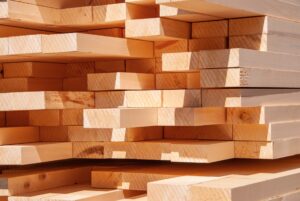 The US Court of International Trade threw out a legal challenge from Canadian softwood lumber producers J.D. Irving Ltd. granting a motion-to-dismiss from the Commerce Department. Timothy Reif said in the opinion that J.D. Irving, which had challenged Commerce’s 2022 antidumping administrate review on grounds that the agency erred by assigning a higher cash deposit rate in the order, has its proper venue under a binational panel though the USMCA now reviewing the Commerce order. While the Canadian firm said it was challenging not the Commerce fine order but the instruction for the cash deposit rate. Reif said the challenge entered on the commerce final result and thus should rest before the USMCA panel. [to access the full story, a MLex.com subscription is required]
The US Court of International Trade threw out a legal challenge from Canadian softwood lumber producers J.D. Irving Ltd. granting a motion-to-dismiss from the Commerce Department. Timothy Reif said in the opinion that J.D. Irving, which had challenged Commerce’s 2022 antidumping administrate review on grounds that the agency erred by assigning a higher cash deposit rate in the order, has its proper venue under a binational panel though the USMCA now reviewing the Commerce order. While the Canadian firm said it was challenging not the Commerce fine order but the instruction for the cash deposit rate. Reif said the challenge entered on the commerce final result and thus should rest before the USMCA panel. [to access the full story, a MLex.com subscription is required] Treasury Secretary Scott Bessent said the Trump administration may declare a national housing emergency this fall as the White House looks to highlight key issues for midterm campaign voters. …Bessent said housing affordability would be a critical leg of Republicans’ 2026 midterm election platform. Bessent declined to list any specific actions the president may take, but he suggested that administration officials are directly studying ways to standardize local building and zoning codes and decrease closing costs. President Trump has repeatedly used emergency declarations to avoid having to send legislation to Congress for approval. Some of those, particularly the emergency law he cited to institute his tariff regime, have faced pushback in federal court. …Trump also spoke out on the issue during the campaign and said he wants to open up federal land for housing development and pledged to help with affordability by eliminating regulations.
Treasury Secretary Scott Bessent said the Trump administration may declare a national housing emergency this fall as the White House looks to highlight key issues for midterm campaign voters. …Bessent said housing affordability would be a critical leg of Republicans’ 2026 midterm election platform. Bessent declined to list any specific actions the president may take, but he suggested that administration officials are directly studying ways to standardize local building and zoning codes and decrease closing costs. President Trump has repeatedly used emergency declarations to avoid having to send legislation to Congress for approval. Some of those, particularly the emergency law he cited to institute his tariff regime, have faced pushback in federal court. …Trump also spoke out on the issue during the campaign and said he wants to open up federal land for housing development and pledged to help with affordability by eliminating regulations.
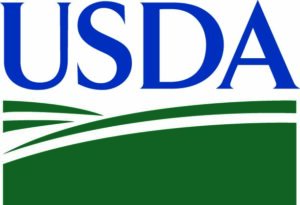 WASHINGTON – US Secretary of Agriculture Brooke Rollins announced the USDA has taken the next step in the rulemaking process for rescinding the 2001 Roadless Rule by opening a public comment period. …The USDA Forest Service is publishing a notice seeking public comment on its intention to develop an environmental impact statement for the proposed rescission of the rule. The notice details the reasons for rescinding the rule, the potential effects on people and resources, and how national forests and grasslands are managed. The USDA will publish the notice August 29, 2025. …While the rescission would apply to roadless areas in Alaska, state-specific rules for Colorado and Idaho would not be affected by the proposal. In total, the 2025 rescission would apply to nearly 45 million acres of the nearly 60 million acres of inventoried roadless areas within the National Forest System. …The public is invited to comment no later than Sept. 19, 2025.
WASHINGTON – US Secretary of Agriculture Brooke Rollins announced the USDA has taken the next step in the rulemaking process for rescinding the 2001 Roadless Rule by opening a public comment period. …The USDA Forest Service is publishing a notice seeking public comment on its intention to develop an environmental impact statement for the proposed rescission of the rule. The notice details the reasons for rescinding the rule, the potential effects on people and resources, and how national forests and grasslands are managed. The USDA will publish the notice August 29, 2025. …While the rescission would apply to roadless areas in Alaska, state-specific rules for Colorado and Idaho would not be affected by the proposal. In total, the 2025 rescission would apply to nearly 45 million acres of the nearly 60 million acres of inventoried roadless areas within the National Forest System. …The public is invited to comment no later than Sept. 19, 2025. 

 President Donald Trump on Friday announced he’s directing his administration to investigate imports of furniture into the United States that will lead to higher tariffs by October. “Within the next 50 days, that Investigation will be completed, and Furniture coming from other Countries into the United States will be Tariffed at a Rate yet to be determined,” Trump wrote. “This will bring the Furniture Business back to North Carolina, South Carolina, Michigan, and States all across the Union,” Trump said. …Already, furniture prices have been increasing over the past few months as Trump hiked tariffs on countries including China and Vietnam, the top two sources of imported furniture. Both countries imported $12 billion worth of furniture and fixtures last year, according to US Commerce Department data. …Furniture stocks, such as Wayfair, William-Sonoma and Restoration Hardware, all tanked in after-hours trading Friday.
President Donald Trump on Friday announced he’s directing his administration to investigate imports of furniture into the United States that will lead to higher tariffs by October. “Within the next 50 days, that Investigation will be completed, and Furniture coming from other Countries into the United States will be Tariffed at a Rate yet to be determined,” Trump wrote. “This will bring the Furniture Business back to North Carolina, South Carolina, Michigan, and States all across the Union,” Trump said. …Already, furniture prices have been increasing over the past few months as Trump hiked tariffs on countries including China and Vietnam, the top two sources of imported furniture. Both countries imported $12 billion worth of furniture and fixtures last year, according to US Commerce Department data. …Furniture stocks, such as Wayfair, William-Sonoma and Restoration Hardware, all tanked in after-hours trading Friday.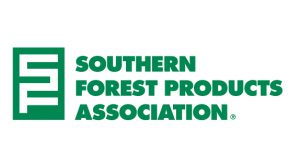 We welcome the recent announcement from the White House regarding the US–EU Framework Agreement on Reciprocal, Fair, and Balanced Trade. Notably, the European Union has committed to addressing U.S. concerns about the EUDR, acknowledging that US commodity production poses negligible risk to global deforestation. This recognition is a positive step toward ensuring Southern Pine lumber producers and exporters are not unfairly burdened by regulations that fail to account for the sustainability and stewardship practices already in place within the American forestry sector. …The EUDR’s stringent traceability requirements (such as geolocation data for every plot of land from which timber is sourced) present serious compliance obstacles for U.S. producers. …Recognizing the broad impact of the EUDR across multiple agricultural sectors, the forest products industry is strategically voicing its objections through official trade and commerce channels.
We welcome the recent announcement from the White House regarding the US–EU Framework Agreement on Reciprocal, Fair, and Balanced Trade. Notably, the European Union has committed to addressing U.S. concerns about the EUDR, acknowledging that US commodity production poses negligible risk to global deforestation. This recognition is a positive step toward ensuring Southern Pine lumber producers and exporters are not unfairly burdened by regulations that fail to account for the sustainability and stewardship practices already in place within the American forestry sector. …The EUDR’s stringent traceability requirements (such as geolocation data for every plot of land from which timber is sourced) present serious compliance obstacles for U.S. producers. …Recognizing the broad impact of the EUDR across multiple agricultural sectors, the forest products industry is strategically voicing its objections through official trade and commerce channels.



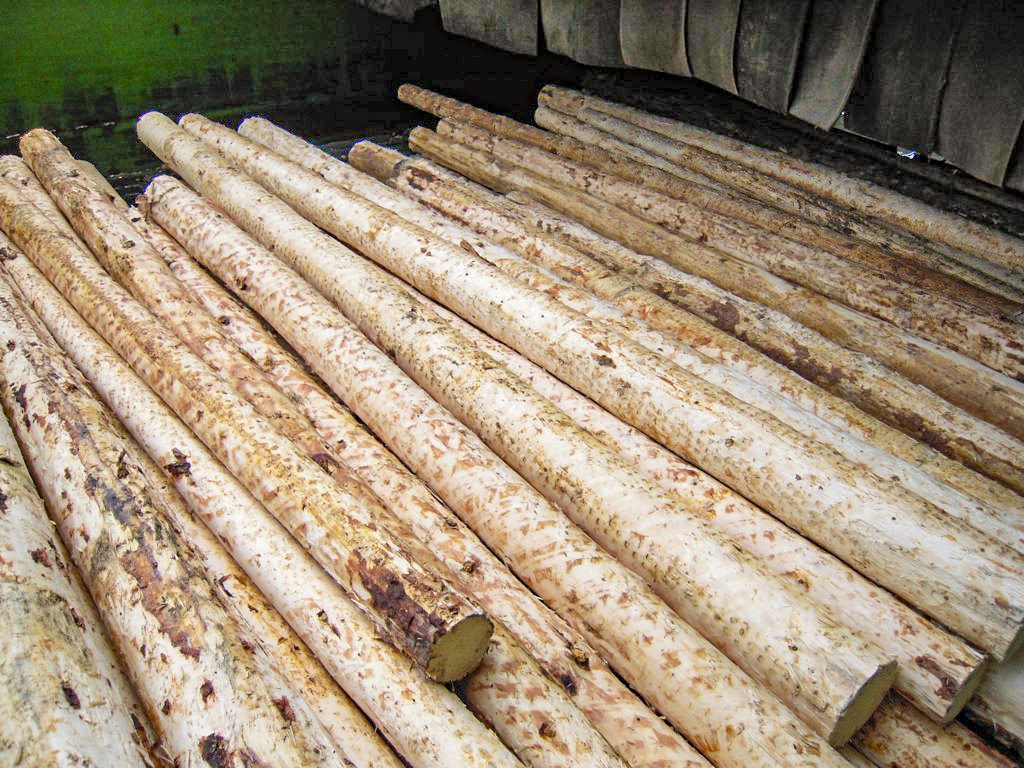 The timber industry, a cornerstone of South Carolina’s economy, is grappling the closure of several key mills. The recent shutdowns of mills in Darlington and Estill have sent ripples through the local supply chain, affecting forest management and the livelihoods of many in the industry. …The timber industry in South Carolina is struggling with significant challenges after major mill closures, including the International Paper Mill in Georgetown, the WestRock Plant in Charleston, the International Paper in Savannah and the Containerboard Mill in Riceboro. Michael Campbell, president and CEO of the South Carolina Timber Producers Association, highlighted the broader economic impact. “It’s a widespread county thing because the loggers tend to haul up to 100 miles away from the mill, so within 100 miles of that mill everything’s impacted,” he said. Despite some new mill announcements, Campbell said they are insufficient to compensate for the lost wood volume.
The timber industry, a cornerstone of South Carolina’s economy, is grappling the closure of several key mills. The recent shutdowns of mills in Darlington and Estill have sent ripples through the local supply chain, affecting forest management and the livelihoods of many in the industry. …The timber industry in South Carolina is struggling with significant challenges after major mill closures, including the International Paper Mill in Georgetown, the WestRock Plant in Charleston, the International Paper in Savannah and the Containerboard Mill in Riceboro. Michael Campbell, president and CEO of the South Carolina Timber Producers Association, highlighted the broader economic impact. “It’s a widespread county thing because the loggers tend to haul up to 100 miles away from the mill, so within 100 miles of that mill everything’s impacted,” he said. Despite some new mill announcements, Campbell said they are insufficient to compensate for the lost wood volume.
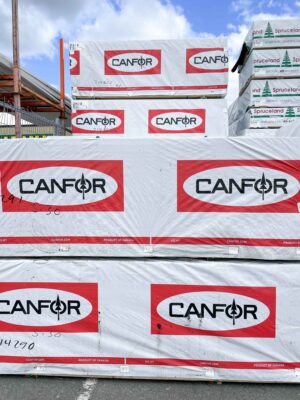 DARLINGTON COUNTY, South Carolina — Monday marked the last day of operation at the Canfor sawmill in Darlington. The mill announced its closure
DARLINGTON COUNTY, South Carolina — Monday marked the last day of operation at the Canfor sawmill in Darlington. The mill announced its closure 
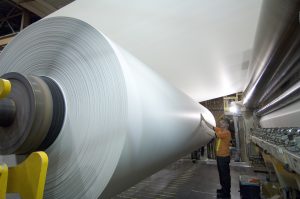 The final reel of paper from No.6, Tokoroa’s last remaining paper mill, once one of six, is being rolled under the smoke and steam of the mill’s chimneys. In November last year Kinleith’s owner, Oji Fibre Solutions, announced it would shutter the paper mill of its plant and move to importing paper to produce its packaging. Kinleith is losing at least 150 jobs, to say nothing of the contractors, maintenance and supplier businesses downstream. The announcement followed a string of paper mill closures across the country costing 300 jobs, which Oji and other operators attributed to untenable wholesale power costs and year on year losses. For Ian Farrell, who has worked at Kinleith since 1986 the writing was on the wall, though he struggled to accept it. “I thought the government surely wouldn’t let this happen,” he says on the Monday morning the paper mill closed. “We were the last paper manufacturing and packaging site left in the country.”
The final reel of paper from No.6, Tokoroa’s last remaining paper mill, once one of six, is being rolled under the smoke and steam of the mill’s chimneys. In November last year Kinleith’s owner, Oji Fibre Solutions, announced it would shutter the paper mill of its plant and move to importing paper to produce its packaging. Kinleith is losing at least 150 jobs, to say nothing of the contractors, maintenance and supplier businesses downstream. The announcement followed a string of paper mill closures across the country costing 300 jobs, which Oji and other operators attributed to untenable wholesale power costs and year on year losses. For Ian Farrell, who has worked at Kinleith since 1986 the writing was on the wall, though he struggled to accept it. “I thought the government surely wouldn’t let this happen,” he says on the Monday morning the paper mill closed. “We were the last paper manufacturing and packaging site left in the country.”